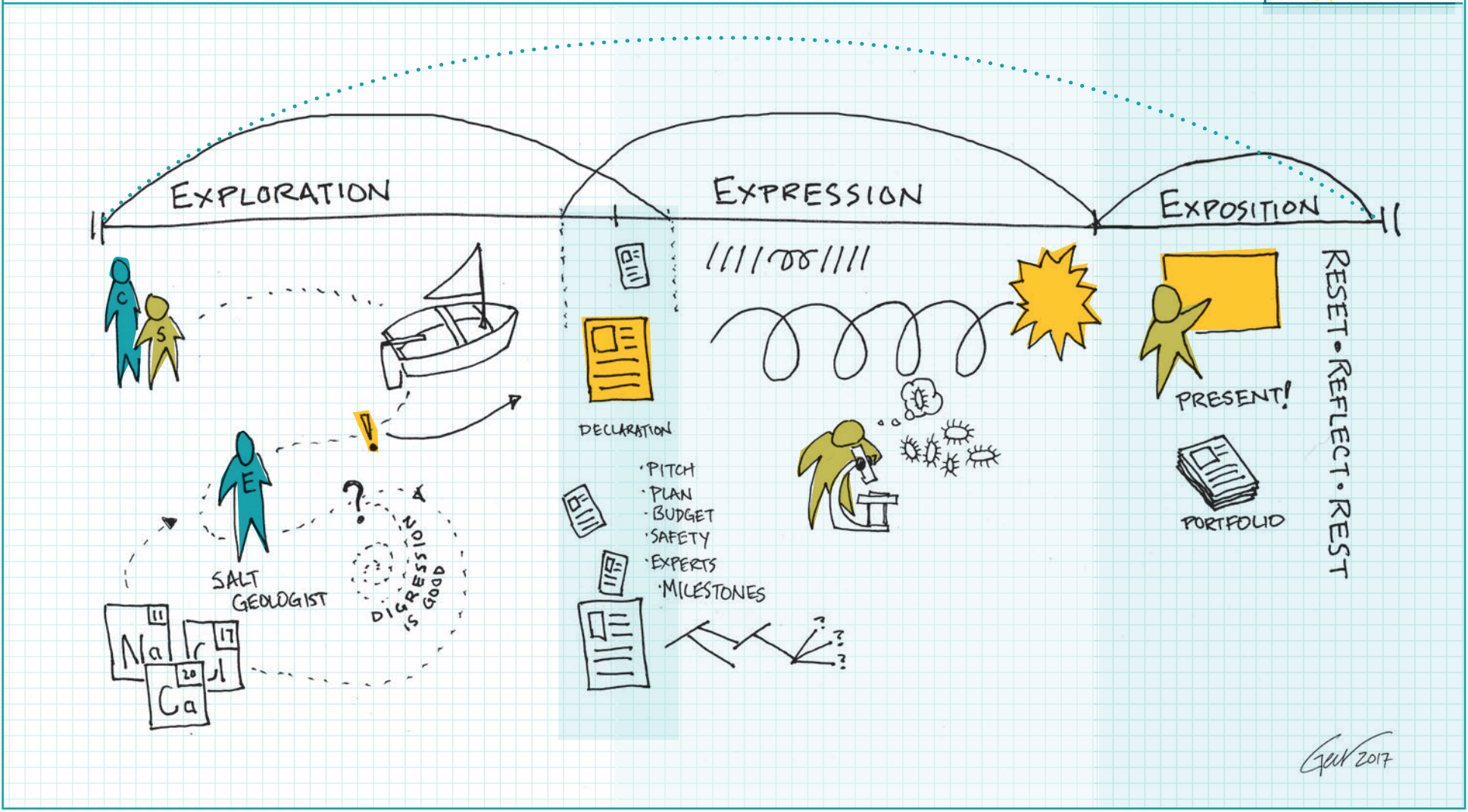
How we learn
Project-Based Learning
“Project Based Learning is a teaching method in which students gain knowledge and skills by working for an extended period of time to investigate and respond to an authentic, engaging, and complex question, problem, or challenge.”
-The Buck Institute for Education
Brightworks’ learning model centers real-world experiences and open-ended questions over rote memorization and test-taking, and fosters students’ critical thinking and empathy in asking questions and solving problems.
Since it was founded in 2011, Brightworks has been known for its unique project-based curriculum. Through group work and individual passion projects, our curriculum is designed to unleash students’ potential to learn and apply knowledge, to pursue and refine their talents. This methodology creates an ecosystem for students to learn by actively engaging in real-world and personally meaningful projects. See PBL Works for more detail.
At it’s core, Brightworks is an engagement-driven school that emphasizes process over product to help students think critically, explore deeply, challenge themselves, contribute positively to society, and learn from their failures and successes. Our graduates are the kinds of lifelong learners they will need to be for success in the balance of the 21st century. Their education at Brightworks has built their sense of agency, intention, and drive to pursue what they are most passionate about, because we know that passion and drive lead to change, and making the world a better place.
Our educators strive to build bonds with the students, challenge them, support them, and create with them so each can find their most beautiful version of themselves.
To guide our students in this journey, we follow what we call the Arc.
A growing body of research shows that project-based learning can have a positive impact on achievement and engagement. Linda Darling-Hammond at Stanford describes how a rigorous project-based approach fits in with what we know works for students.
We learn by exploring
We learn by collaborating
We learn through projects
The Brightworks Arc
The Arc is the fundamental rhythm of a Brightworks education. With two to three major arcs each year, students move through a diverse course of study in a series of intensive immersions, emphasizing depth over breadth, integrating and contextualizing the development of skills and domain knowledge.
The Arc allows students to contextualize their learning in real-world scenarios and connections between ideas, which creates pathways in the brain for longer-lasting learning.
Each arc is framed by a specific topic that each student, kindergarten through high school, approaches at a level and perspective appropriate to their age.
Exploration
The beginning phase of the arc is Exploration, a time to delve into the fundamental questions about a topic - What is it? What does it mean? Why is it important? Central to Exploration is a group project that gives students motivation and context for the core skills that they are developing. This is a time to model of the important aspects of project work, like collaboration, growth mindset and project management.
Expression
In the next phase of the arc, Expression, students build on what they learned in Exploration by creating anything from a structure or art object to an experiment, a research project, or a performance, centered around whatever facet of the arc topic has caught their intellectual interest. Collaborators and experts support students in project management, documentation, collaboration, and specific skills to complete their project.
Exposition
The final phase, Exposition, requires students explain their work to their community and themselves through written and oral presentations, question sessions, and demonstrations. In doing so they develop robust and flexible communication skills and integrate their most recent work into their continuing intellectual and social-emotional growth.
The Arc for early elementary students looks a little different.
Through play and provocations, our youngest students explore ideas, materials, and questions. This exploration leads to discovery related to the arc topic. Through those discoveries, students collaborate to create an artifact that is a reflection of their learning.
They test these prototypes, give and receive feedback, then continue to work together to finalize their group project. During Expo night, students share their findings and their creations. This process lays the foundation for individual projects in the later elementary years.











